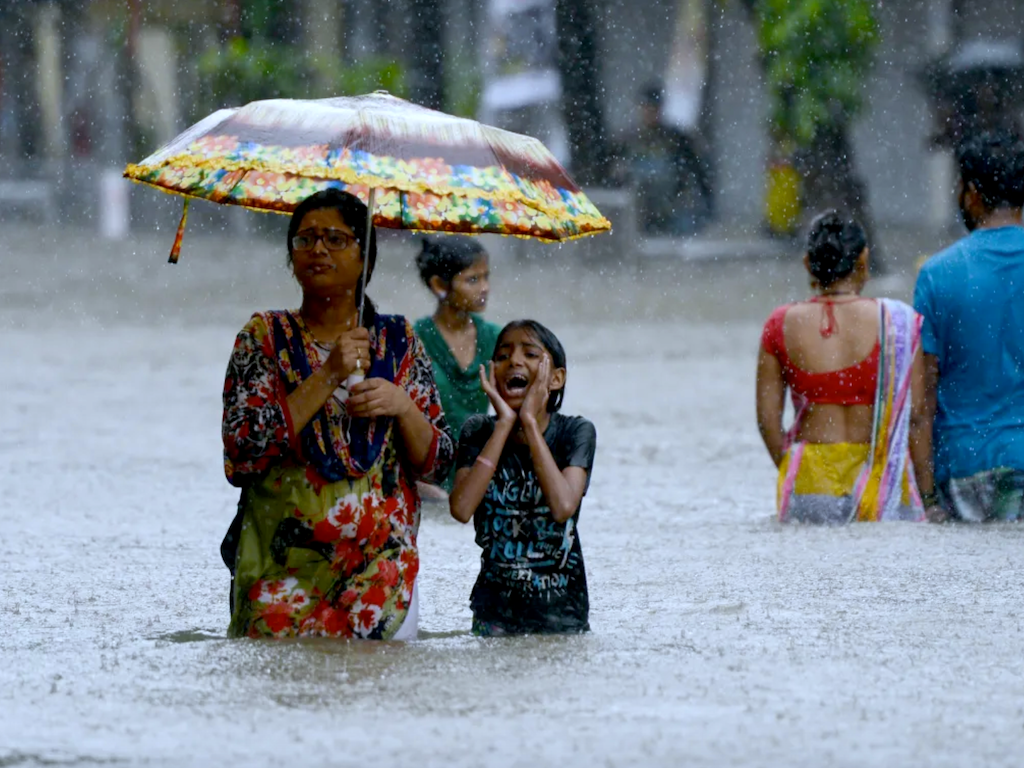4 Mins Read
In a special report just released by the United Nations Intergovernmental Panel on Climate Change (IPCC), our world is facing unprecedented dangers posed by global warming, which will affect the oceans and cryosphere that humanity crucially depends on for life on earth. The findings are a chilling call for urgent climate action, especially in the Asia-Pacific region, home to many small developing island states and low-lying coastal communities.
Approved at the latest Climate Summit session ending Monday 23rd September, the IPCC has accepted a Special Report on the Ocean and Cryosphere in a Changing Climate with contributions from over 100 authors across 36 countries, referencing 7,000 scientific publications. The report revealed the extent of global warming and the impact it is projected to have in the future for sea level rise and extreme climate conditions. At our current rate, we are likely to see intense and destructive storms, loss of marine biodiversity, melting ice caps and permafrost and sea-level rise – all of which are events that will majorly impact human life globally. The report also outlines urgent policy recommendations to restore and protect ecosystems, carefully manage natural resource use and reducing greenhouse gases as measures that would limit the risk posed by global warming.
Core Findings You Need To Know
- There will be major changes in high mountains, impacting downstream communities who will become exposed to water stress and natural hazards such as landslides, floods and avalanches caused by declining glaciers, snow, ice and permafrost.
- Glaciers and ice sheets in polar regions are losing mass at an accelerated rate, which will mean rapid sea level rise and warmer oceans.
- We are likely to see frequent extreme sea level events such as high tides, intense storms and strong rainfall, which will occur every year by 2050 in many regions, especially in small island nations and low-lying coastal cities.
- Changes in ocean chemistry due to warmer temperatures will disrupt marine species, ecosystems and the people who depend on them, such as tropical communities that depend on seafood for food security.
- We are seeing declining Arctic sea ice every single month of the year, and widespread permafrost thawing is predicted to continue at our current rate.
Inevitable Destruction & Sea Level Disasters
The planet is experiencing record-breaking destruction caused by global warming on our oceans and cryosphere, which play a vital role in human civilisation. The “cryosphere” refers to the frozen components of the Earth’s system, such as snow, glaciers, icebergs and ice on seas, lakes and rivers. The major finding of the special report is that our climate crisis is at the point where extreme sea level events that used to occur only once a century will be happening annually in many of the world’s regions. We are already at the point where these impacts, from super-typhoons to melting ice caps and mass loss of marine life are inevitable.
Crucially, a huge number of the world’s population rely on these systems. According to the report, 670 million in high mountain regions and 680 million in low-lying coastal zones directly depend on these systems to sustain their lives. In addition, 4 million living in the Arctic region and the 65 million inhabiting small island states are likely to also be severely impacted.
It Could Get Worse If We Delay Action
While these severe impacts are already underway to hit many regions in the world, the special report also urges that without action to cut carbon emissions and implement rapid climate mitigation and adaptation measures, we are facing far worse impacts. In the worst case scenario, which we are heading towards at our current trajectory, we are seeing a 4 metre sea level rise, which would harm as many as 2 billion people on the planet – that is half the world’s megacities and coastal population. It would not only directly impact the physical security of many people, but will result in trillions of dollars of damage each year.
Commenting on the severity of findings, Professor Jonathan Bamber from Bristol University told the Guardian that “the future for low-lying coastal communities looks extremely bleak.”
With many of these threatened communities located in the Asia-Pacific region, Taehyun Park from Greenpeace East Asia agreed with Bamber: “The impacts on our oceans are on a much larger scale and happening way faster than predicted. It will require unprecedented political action to prevent the most severe consequences.”
There Is Some Hope
Despite the dire outlook, the special report revealed the possibility of effective adaptation for sustainable development if action is taken now. According to the report, we have a chance to avoid the escalating costs posed by accelerating global warming if we strongly reduce greenhouse gas emissions, eliminate the use of fossil fuels, conserve and restore ecosystems, and support climate adaptation infrastructure. These recommendations will cost countries billions or even trillions, but it is necessary to limit the risk to human livelihoods and can generate additional societal benefits and economic rewards well into the future.
Lead image courtesy of Punit Paranjpe / AFP/ Getty Images.




